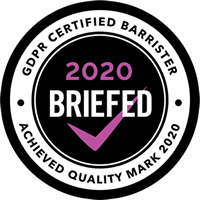
DERIVATIVE CLAIMS IN COMPLEX GROUP STRUCTURES: TONSTATE GROUP LTD V WOJAKOVSKI
15th August 2019
Michael Todd QC and Andrew Blake examine derivative claims in complex group structures in Tonstate Group Ltd v Wojakovski.
The proliferation of multi-national groups, sometimes with offshore holding company structures but with no other substantial connection to the jurisdiction of incorporation of their holding companies, raises issues as to the manner in which wrongs committed in relation to the affairs of a subsidiary company may be addressed. In many instances a derivative claim is necessary, perhaps because of wrongdoer control, or, quite often, because of deadlock throughout the group.
In Tonstate Group Ltd v Wojakovski [2019] EWHC 857 (Ch), the court was concerned with such circumstances. At a substantial case management hearing, Zacaroli J granted permission for the continuation of derivative claims on behalf of a number of group companies against one of their directors (the defendant). In doing so, he dealt with a number of issues of interest to those considering the use of a derivative claim in complex group structures, or, indeed, in commercial joint ventures.
Multiple, cross-border and trust derivative claims
Certain of the companies within the Tonstate Group (referred to in the case as the Yellow Companies) had previously commenced proceedings against the defendant. As a result of the resignation of a director holding the balance of power, the boards of the Yellow Companies had become deadlocked and were unable to give instructions for the continued pursuit of the proceedings. Permission was therefore sought to continue the claims as derivative actions.
Because of deadlock throughout the group, the only suitable candidate to bring the derivative claims on behalf of the Yellow Companies was one of the ultimate beneficial owners (the applicant). This gave rise to the first issue because the applicant’s interest was (1) indirect, (2) beneficial only, and (3) held through a British Virgin Islands (BVI) incorporated holding company.
The first point was not and should not be problematic, it being well-established that multiple derivative claims are available at common law where the claims are pursued by someone who is not a member of the company but a member of the company’s parent, or its parent’s parent: Universal Project Management Services Ltd v Fort Gilkicker Ltd [2013] EWHC 348 (Ch); Abouraya v Sigmund [2014] EWHC 277 (Ch).
The second point, although not simple, was also relatively uncontroversial on the facts in Tonstate in light of the authorities. The availability in appropriate circumstances of the trust derivative claim was confirmed in Roberts v Gill [2010] UKSC 22. Moreover, it is clear from the first instance decision in Eclairs Group Ltd v JKX Oil & Gas Plc [2013] EWHC 2631 (Ch) at paras 248-255 (upheld in this regard on appeal: JKX Oil & Gas Plc v Eclairs Group Ltd [2014] EWCA Civ 640 at paras 33-38) that such claims can be available for beneficiaries to assert rights belonging to nominee shareholders. There is also recent BVI authority allowing claims reserved for a ‘member’ of a BVI company to be pursued as trust derivative claims by the beneficial owner, on behalf of the member, and thus derivatively on behalf of the company: TIPP Investments PCC v Chagala Group Ltd and others BVIHC (COM) 2016/012 at paras 62-65.
The third point was less straightforward. It is clear that common law derivate claims can be brought in the courts in England and Wales in respect of overseas companies as in Abouraya. What was less clear was the approach that should be taken where the company is incorporated in England but its parent (or its parent’s parent) is incorporated elsewhere. In those circumstances, is it necessary to look to the law of that other jurisdiction in order to find out if a derivative claim is available; that is, whether a member of a company incorporated in that other jurisdiction is entitled to pursue in England and Wales that company’s claim, on its behalf.
S 184C(6) BVI Business Companies Act 2004 allows the BVI court to grant permission to a member of a BVI company to bring proceedings in the name and on behalf of that company. S 184C(6) provides that “Except as provided in this section, a member is not entitled to bring or intervene in any proceedings in the name of or on behalf of a company.” This might at first blush have appeared to apply in Tonstate. However, the correct analysis, which the High Court accepted, albeit without the benefit of oral argument (such analysis not being contested by the defendant), was that there was no need to obtain the permission of the BVI court because:
(1) the law which applies to govern the right of a shareholder to bring a derivative claim in respect of a wrong done to a company (A) is, as a matter of English conflicts law, the law of the country of incorporation of the company concerned (A): Konamaneni v Rolls Royce Industrial Power (India) Ltd [2001] EWHC Ch 470. In Tonstate, the companies concerned were the Yellow Companies, incorporated in England, and not the overseas holding company, incorporated in the BVI;
(2) as a matter of English law, the derivative action “is merely a procedural device” and the claimant “is not exercising some right inherent in its membership, but availing itself of the court’s readiness to permit someone with a sufficient interest to sue as the company’s representative”: Briggs J in Fort Gilkicker at para 24 (see also the analysis of Lord Millett NPJ in Waddington Ltd v Chan Chun Hoo Thomas [2009] 2 BCLC 82 (Hong Kong Final Court of Appeal), in particular at para 74);
(3) it followed inexorably from Fort Gilkicker, in which the claim was allowed to proceed derivatively notwithstanding that the parent was an LLP (whose members lacked recourse to statutory derivative claims) that the court was only concerned with the company on behalf of which the claim was to be pursued, and in seeking an appropriate ‘champion’ for that company; and
(4) accordingly, the authority initially relied upon by the defendant, Novatrust Ltd v KEA Investments Ltd and others [2014] EWHC 4061 (Ch) was not on point. In Novatrust, HHJ Pelling QC applied BVI law to the question of the availability of a derivative claim, but he did so (rightly) because the company to which the claims belonged, rather than its parent, was a BVI company.
Availability of common law derivative claim
In Tonstate, the court also considered some of the limitations on the availability of a common law derivative claim.
Certain of the other companies within the Tonstate Group (the Red Companies) were yet to commence proceedings against the Defendant. It was intended that these would be pursued as statutory derivative claims by Tonstate Group Limited (TGL), of which the defendant was the registered holder of nearly 50% of the shares, but which company he was not in a position to control.
The defendant argued that the Red Companies’ claims should not be pursued as statutory claims by TGL but should instead be pursued as common law (multiple) derivative claims by the applicant, who was also a member of TGL. The defendant wanted the applicant to personally fund the claims against him, rather than TGL. Zacaroli J (rightly) rejected (at para 24) the defendant’s argument, concluding that a common law derivative claim would only be available if a statutory derivative claim was not. The fact that TGL was in a position to pursue the claims meant that the applicant could not pursue them himself even if he wanted to. The common law derivative action is available only where the exceptions to the rule in Foss v Harbottle (1843) 2 Hare 461 have been established and the necessary wrongdoer control would not be established where the immediate parent company was in fact in a position to pursue the claim.
Indemnity
Although in Tonstate there were many reasons why a derivative claim was the appropriate route, that will not always be the case. Often the principal or only advantage of a derivative claim (over, for example, an unfair prejudice petition under s 994 CA 2006) will be the prospect of an order requiring the company to pay for the proceedings. Tonstate makes clear that often such orders will not be available.
One question which arose was whether the indemnity sought in derivative actions is on a ‘pay-as-you-go’ basis or if it can only be called at the conclusion of the proceedings. Zacaroli J observed that the authorities make clear that both are possible (contrast Iesini v Westrip Holdings [2009] EWHC 2526 at para 125 and Wallersteiner v Moir (No. 2) [1975] QB 373 at p403-404).
The court will not, however, necessarily take the same approach to each type of indemnity. For example, in relation to a pay-as-you-go indemnity, the impecuniosity of the claimant, which must be established by evidence, will often take on greater importance: see Smith v Croft (No. 1) [1986] 1 WLR 580 at p597.
In Tonstate, the applicant sought from the Yellow Companies a ‘pay-as-you-go’ indemnity but suggested that, if necessary, the indemnity could be subject to adjustment after trial. In other words, it was suggested that the Yellow Companies would fund the litigation and if the case was unsuccessful at trial, the applicant would repay them.
That concession, in itself, was not enough. Where the company is closely held, as in Tonstate, the court will exercise particular care before granting an indemnity: see Halle v Trax BW Ltd [2000] BCC 1020 and Bhullar v Bhullar [2015] EWHC 1943 (Ch).
Zacaroli J concluded that the correct approach in the circumstances of the case, where “the dividing line between benefit to the companies and benefit to Mr Matyas as a shareholder is far less obvious”, was to apply the strict principles of Halle and Bhullar. He then formulated the question (at para 15) in the following way:
“can I be confident that the court would at the end of the proceedings – and whatever the outcome – burden the companies and thus, to the extent he is a 50% shareholder, [the defendant] with the costs of pursuing them? As to this, if [the defendant] were to succeed, I find it virtually impossible to conceive the court would consider burdening any part of his interest in the companies with the costs of pursuing the claims against him”.
That is an exceptionally difficult test to meet at an interlocutory hearing.
In that regard, the court also paid very close attention to the financial position of the Yellow Companies. The court required cogent evidence to be satisfied that the indemnity would not have an adverse impact on the defendant (or, presumably, creditors). On the evidence, the court was not satisfied that the financial position was sufficiently strong to ensure that there could be no such prejudice.
Where a company is closely held, the applicant will have its work cut out to convince the court that it is appropriate to grant an indemnity. Strong evidence as to the company’s financial position will often be very important, particularly where a ‘pay-as-you-go’ indemnity is sought.
Conclusion
Zacaroli J’s judgment in Tonstate covers, clearly and succinctly, a great deal of legal ground in relation to derivative claims. There are, however, we suggest, at least two points to take away.
First, despite the rather rigid confines of the statutory derivative claim, the court continues to approach derivative claims generally with the flexibility they deserve and will not easily allow a wrong to go without redress. This is true even of modern, complex corporate structures, and will no doubt be of interest to those considering routes to redress in joint venture disputes, amongst others. The fact that the relevant party’s interest is held through a number of holding companies, across jurisdictions and, ultimately, through a nominee, will not in itself be a bar to the pursuit of a derivative claim.
On the other hand, it is important not to assume that, just because a derivative claim is available, the court will necessarily grant an indemnity (whether on a ‘pay-as-you-go’ or ‘end of the proceedings’ basis) in favour of the individual championing the claim. Particularly in relation to closely held companies and joint ventures, the court will take considerable care to assess whether an indemnity would be the proper order to make following a trial of the merits. In circumstances where the court cannot form a realistic view of the merits in advance of trial, it will often err on the side of caution and against granting the indemnity.
Michael Todd QC and Andrew Blake appeared for the applicants.
Patrick Harty appeared as junior counsel for the defendant.
This case feature was first published in FromCounsel‘s Corporate Briefing on 24 July 2019.



